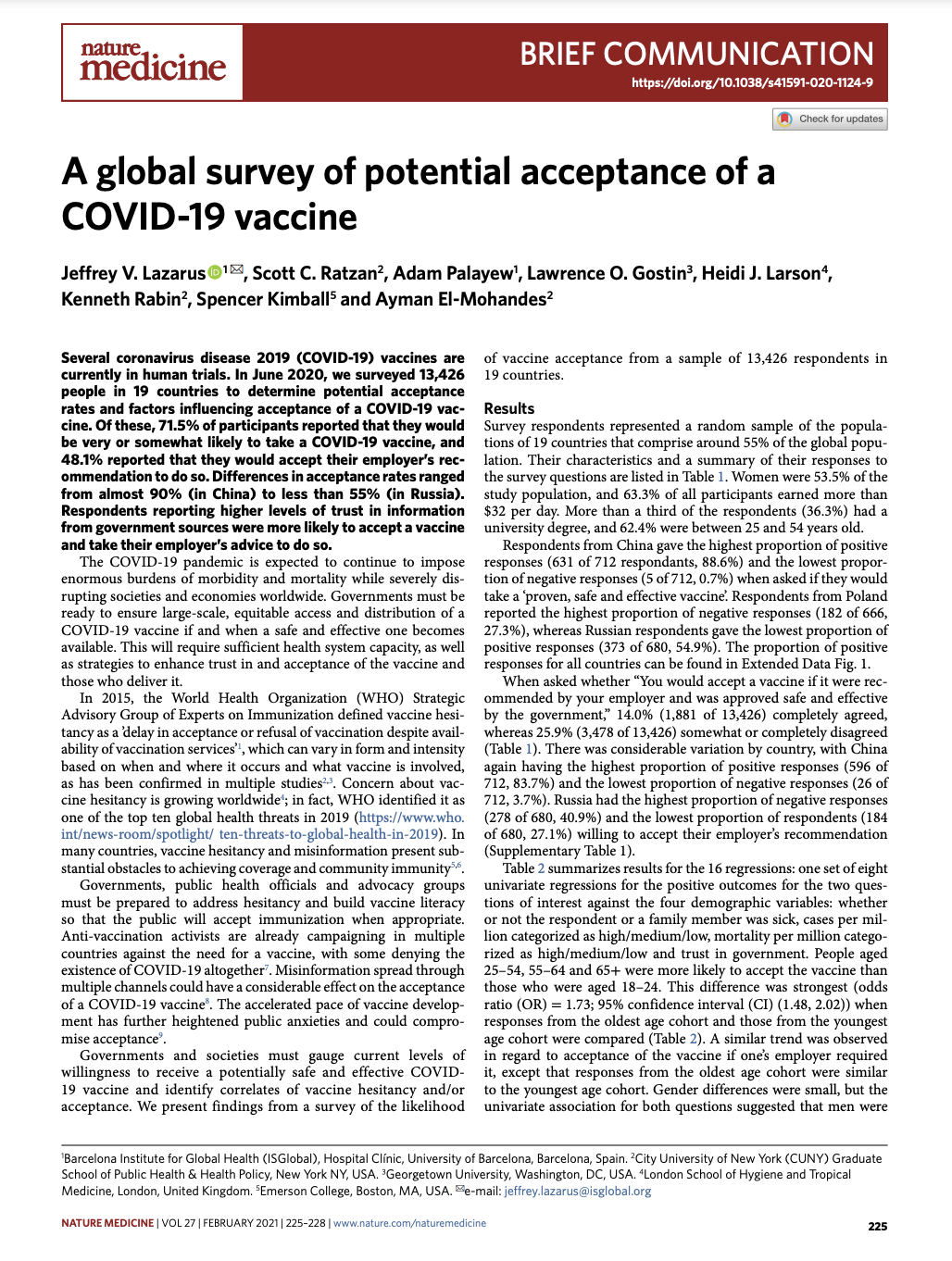A global survey of potential acceptance of a COVID-19 vaccine
Description
Several coronavirus disease 2019 (COVID-19) vaccines are currently in human trials. In June 2020, we surveyed 13,426 people in 19 countries to determine potential acceptance rates and factors influencing acceptance of a COVID-19 vaccine. Of these, 71.5% of participants reported that they would be very or somewhat likely to take a COVID-19 vaccine, and 48.1% reported that they would accept their employer’s recommendation to do so. Differences in acceptance rates ranged from almost 90% (in China) to less than 55% (in Russia). Respondents reporting higher levels of trust in information from government sources were more likely to accept a vaccine and take their employer’s advice to do so.
The COVID-19 pandemic is expected to continue to impose enormous burdens of morbidity and mortality while severely disrupting societies and economies worldwide. Governments must be ready to ensure large-scale, equitable access and distribution of a COVID-19 vaccine if and when a safe and effective one becomes available. This will require sufficient health system capacity, as well as strategies to enhance trust in and acceptance of the vaccine and those who deliver it.
In 2015, the World Health Organization (WHO) Strategic Advisory Group of Experts on Immunization defined vaccine hesitancy as a ’delay in acceptance or refusal of vaccination despite availability of vaccination services’1, which can vary in form and intensity based on when and where it occurs and what vaccine is involved, as has been confirmed in multiple studies2,3. Concern about vaccine hesitancy is growing worldwide4; in fact, WHO identified it as one of the top ten global health threats in 2019 (https://www.who.int/news-room/spotlight/ten-threats-to-global-health-in-2019). In many countries, vaccine hesitancy and misinformation present substantial obstacles to achieving coverage and community immunity5,6.
Governments, public health officials and advocacy groups must be prepared to address hesitancy and build vaccine literacy so that the public will accept immunization when appropriate. Anti-vaccination activists are already campaigning in multiple countries against the need for a vaccine, with some denying the existence of COVID-19 altogether7. Misinformation spread through multiple channels could have a considerable effect on the acceptance of a COVID-19 vaccine8. The accelerated pace of vaccine development has further heightened public anxieties and could compromise acceptance9.
Governments and societies must gauge current levels of willingness to receive a potentially safe and effective COVID-19 vaccine and identify correlates of vaccine hesitancy and/or acceptance. We present findings from a survey of the likelihood of vaccine acceptance from a sample of 13,426 respondents in 19 countries.
Additional languages

DETAILS
Publication
Authors
Emergency
Scope
Language
Region
Keywords

